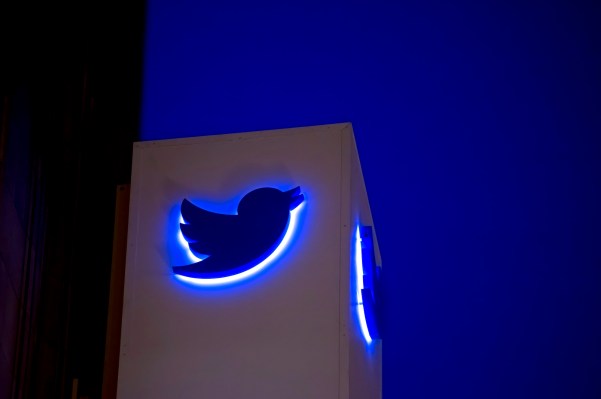Watching Elon Musk and others attempt to buy Twitter got me thinking about the time Salesforce wanted to purchase the social media platform.
Back in 2016, around the time of Salesforce’s Dreamforce Conference in San Francisco, rumors ran rampant that the company was ready to spend $20 billion to purchase Twitter. It would eventually back off when investors balked.
Salesforce was a much smaller company back then, and the deal would have been a huge stretch. Perhaps the company’s interest stemmed from the fact that Microsoft had recently bought LinkedIn for $26 billion, and Salesforce chairman and CEO Marc Benioff wanted to add a social component to his cloud CRM company.
Other companies were rumored to be interested back then, including Microsoft, Google and Verizon (TechCrunch’s owner at the time). But Salesforce emerged from the pack as the most interested buyer.
Why Twitter? The idea was to combine the social component of Twitter with sales and service on the Salesforce platform. But it was not to be, which the company made official on October 14, 2016, when Benioff told the Financial Times that it wasn’t the right fit.
In hindsight, it was probably better for Salesforce to pass, as the vendor was busy enough. Holger Mueller, analyst at Constellation Research
Salesforce would eventually buy Mulesoft in 2018 for $6.5 billion and Tableau for $15.7 billion in 2019, two deals that were worth almost as much and were, arguably, a much better fit for the CRM giant than Twitter would have been.
Twitter thus remained an independent platform and there was little known M&A interest in it until recently.
But what if history went a bit differently and Salesforce acquired the company? We spoke to some analysts who cover the CRM industry to get their thoughts.
Maintaining focus
To start with, Salesforce investors didn’t like the idea, and Benioff had to acquiesce eventually. Brent Leary, founder and principal analyst at CRM Essentials, said investors were straight up against the deal.
“I think at the time it was hard to justify the price tag, but I’ve always thought the right buyer could’ve done something significant with Twitter,” he said. “If Salesforce had pulled the trigger, it would’ve been interesting to see what that combination could’ve done, especially now with Salesforce+ (the company’s media arm) being in the mix.”
Holger Mueller, an analyst at Constellation Research, said buying Twitter would have shifted Salesforce’s revenue focus toward advertising at a time when its attention needed to be on getting more companies to move to the cloud.
“In hindsight, it was probably better for Salesforce to pass, as the vendor was busy enough and had enough work to do moving its customer base to the public cloud. That ranked higher than acquiring Twitter,” he said.
Laurie McCabe, co-founder and partner at SMB Group, said it’s hard to know, but the company probably dodged a bullet.
“It’s hard to say what would have happened had SFDC acquired Twitter. I’m sure Marc Benioff had a plan for how to make it into a more valuable asset, but we don’t know what it was or how it would have turned out. With that said, though, I think SFDC was better off without having Twitter as a distraction,” she said.
Anand Thaker, an independent analyst who watches the sales and marketing software industry, said the platform would have proven to be a headache for Salesforce as it became more politicized during this period.
“On paper, an acquisition may have made sense. However, Twitter’s emerging role as a democratized information platform would have required heavy resources shifted or invested in navigating privacy, procedural and policy matters — not to mention navigating distinctly different brands, which would challenge both the trust and growth of both companies,” Thaker said.
What about Twitter?
Company founder Jack Dorsey had returned to Twitter the year before Salesforce’s aborted bid. It wasn’t clear at the time if Twitter even wanted to sell, but would it have been better off if it had?
Mueller said Twitter was probably better off remaining independent, and the value of its latest offer is more than double the number rumored in 2016. “It certainly was better for Twitter to remain independent, though the rate of innovation has been slow there as well. [ … ] Combining two slow innovators does not make a fast one.”
McCabe said that users are probably happier that Twitter has remained independent.
“I think most Twitter users like that it is independent on the one hand, but are probably frustrated as well that its influence as a social platform has waned as sites like Instagram and TikTok have risen. Twitter needs an innovative strategy to help make it a first-choice platform for more users,” she said.
As Thaker pointed out, Salesforce does have some influence over the company today, with Salesforce co-CEO Bret Taylor presiding over the company’s board of directors, but that’s very different from owning it.
In the end, the deal didn’t happen, but once upon a time, Benioff was ready to pull the trigger on this acquisition. After it fell through, Twitter sailed along independently until Musk came sniffing around last week.
Since then, several private equity firms, including Thoma Bravo and Apollo Global (the owner of this publication), have been reported to be interested in the social media company as well. Whether a deal happens this time around remains to be seen.
